Adopting a dog from an unethical shelter or rescue can quickly turn into a nightmare for your family.
I’ve heard stories of rescues that flat-out lie to adopters to get dogs adopted. Loving families accidentally end up with sick, aggressive, or even dying dogs – all because they didn’t know how to identify a good shelter.
While even the best shelters may at times adopt a dog into a home that’s not the right fit, you can stack the deck in your favor by adopting from a reputable animal shelter.
The same goes for finding a shelter if you must give up your dog. Surrendering your dog to the right shelter will help her get the veterinary and behavioral support that she may need. That shelter will work to get to know her and place her in the best possible home – or responsibly euthanizing her if she is suffering and there’s no reasonable treatment.
If you’re not sure if it’s time to surrender your dog to a shelter, check out our guide to when it might be time to rehome your dog.
Whether you’re on the adopting or the surrendering side of the equation, it’s up to you to support a good shelter. Putting your money and support towards an ethical shelter will help more than just your own dog – it has a ripple effect.
12 Traits of an Iffy Animal Rescue or Shelter: What to Watch Out For
Sometimes, it’s easier to talk about what to avoid than it is to talk about what to look for. That’s true in the case of looking for a good rescue or shelter to work with. While great shelters come in all shapes and sizes, there are some pretty big, consistent warning signs of shelters to steer clear of.
Don’t adopt your dog from or surrender your dog to a shelter that:
1. Doesn’t let adopters meet the dogs before adoption day
While you can learn a lot from looking at photos and bios on dog adoption wbesites like Petfinder, that’s no substitute for actually meeting your new dog. Whether you’re adopting or surrendering, you and your dog will be happiest if the shelter is good about letting dogs and adopters meet.
Keep in mind that some shelters might not allow you to “think it over” on a dog. While I dislike this practice, I don’t consider this a red flag. Most good shelters will allow you to meet your dog as often as you like, keeping in mind that someone else might adopt your dog while you think it over – there’s no calling dibs on dogs!
2. Takes dogs directly from transport vehicles to adoption
An even bigger red flag is a rescue or shelter that takes dogs right from transportation to adoption. This is more common in rescues that specialize in bringing dogs to your area from other areas.
When dogs are adopted straight off of the transport vehicle, it means that rescues aren’t getting to know the dogs, letting the dogs relax, or, at worst, skimping on medical checkups before adopting the dogs out. This is a huge red flag!
3. Doesn’t take dogs back
Before adopting or surrendering, ask if the rescue or shelter will take the dog back if something goes wrong. While hopefully your dog will never need to come back to the shelter, it’s best to support shelters that have this policy.
4. Adopts out puppies younger than 8 weeks
If a shelter is properly vaccinating and fixing its animals, there’s no possible way it will have any puppies younger than 8 weeks old up for adoption. They may be looking for foster homes, but underage puppies shouldn’t be up for adoption.
Aside from being majorly unethical (it’s related to issues like aggression), this is also illegal in many states.
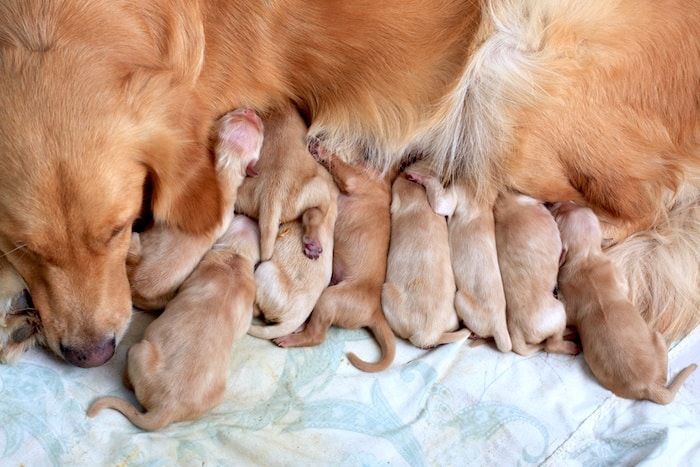
5. Doesn’t offer full proof of vaccinations (or adopts out unvaccinated dogs)
Run far, far away from a shelter that doesn’t have proof of vaccinations or adopts out dogs that are unvaccinated. If a shelter or rescue can’t afford to vaccinate the dogs in their care, it’s best not to keep them in business.
Get proof of vaccinations, don’t just ask if the dog is up to date. This should come with every single dog that leaves a shelter or rescue.
6. Adopts out dogs that aren’t spayed or neutered
For similar reasons to above, steer clear of shelters that adopt out dogs that aren’t fixed yet. Even if you’re adopting a small puppy, the puppy should be fixed prior to adoption.
7. Feels like a car sales place
Adopting your dog should feel like a date, not a used car dealership. Both parties are putting their best foot forward, but they’re both willing to walk away if the fit feels off.
Any rescue or shelter that pushes adoptions onto you or makes lofty promises about a pup’s perfect behavior doesn’t actually have everyone’s best interests in mind.
8. Rushes adoptions
Many sketchy rescues require that you make a snap decision. They may even just drop the dog off with you (sight unseen), arrange a midpoint meetup with a strict time limit, or simply rush you if you’re at an adoption event.
A good rescue is primarily concerned with the long-term well-being of the dog. They won’t rush you or only give you a few minutes to meet the dog and make a decision. Instead, they’ll let you take the time you need to get to know the dog.
Most good rescues will allow you to put a dog on hold for a few hours so the entire family can come meet the dog. This means that they really have the dog’s long-term interest in mind!
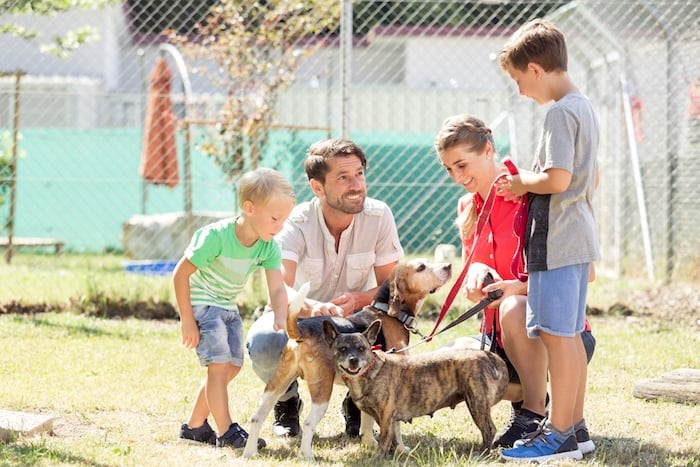
9. Has spotty communication
Be skeptical of a rescue that routinely lets emails sit for days or weeks. Many rescues are volunteer-run and may struggle to keep up with communication, but this isn’t a good sign in my eyes.
I’ve heard too many stories of rescues that were struggling and eventually “went under” – sometimes stranding foster dogs with parents or leaving adopters hanging. In every case, the first warning sign was unresponsiveness from the rescue.
10. Adopts out dogs without quarantines or stray holds
If your dog is coming from out-of-state, the rescue or shelter might be legally required to quarantine the dogs before adopting them out.
These specific laws vary from state to state. You might be able to quarantine the dog in your home, or the rescue might be required to keep the dog for several weeks before sending him home with you. If your state requires a quarantine and the rescue ignores this law, stay away!
Similarly, most parts of the U.S. require that a stray dog can’t be adopted out right away. This gives the owners a chance to find their dog and take him home if the dog was lost accidentally. Again, stay far away from rescues that ignore these laws.
11. Won’t discuss what happens to difficult-to-adopt dogs
Especially in a rescue that is proud to be no-kill, it’s important to ask hard questions about difficult-to-adopt dogs.
Most rescues and shelters have had to deal with at least one seriously scary aggressive dog. Did the rescue make the decision to euthanize the dog to keep the community safe, put the dog into a sanctuary, transfer the dog to a different rescue, or risk danger to children in your city by adopting the dog out?
Find a rescue whose decision making in these situations aligns with your ethics.
12. Doesn’t have the resources to help your dog
When looking for a shelter to surrender your dog to, keep in mind what your dog’s potential hurdles are as a shelter dog.
If your dog can be a bit skittish with strangers, look for a shelter that has a behavior team and trainers that can help. If your dog has a lump or two, don’t surrender him to a shelter without veterinary support.
It’s not fair to your dog to leave him at a shelter that simply can’t give him the help he needs.
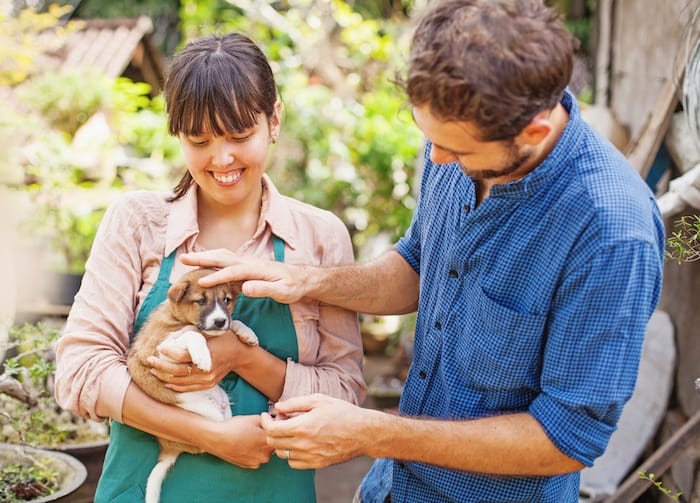
Good Shelter Must-Haves: Don’t Adopt or Relinquish Without Seeing This
You’ve done your homework and have a good idea of which area shelters or rescues aren’t a good fit for you. While that certainly eliminates the worst places nearby, it doesn’t necessarily tell you which local shelter is the best fit for your dog.
To really find the best of the best as far as shelters go, there are four things to look for.
Has veterinarians and behavior support. Whether you’re relinquishing your pet or looking to adopt, it’s best to steer towards a shelter with on-staff vets and trainers.
Bonus points: see if the shelter or rescue provides offsite spay and neuter clinics or behavior classes to the community. Any extra outreach deserves extra kudos!
Takes care of the animals’ mental health. Really stellar shelters provide their dogs with puzzle toys, calming spray, soothing music, and regular walks to stretch their legs and sniff the smells. Try to support these shelters by adopting from them, or set your dog up for success by leaving him at one of these.
Creative marketing. While this isn’t strictly necessary, it’s great to see creative marketing efforts for adoptable pets. This is especially important if you’re dropping your pet off – good marketing will help get your pet adopted more quickly. One of my all-time favorite examples of this is the Greater Pet Alliance of Orlando, which sorted its dogs into personality-based “Hogwarts Houses,” rather than marketing based on breed.
Side note: Some sketchy rescues might have great marketing, so don’t go off of this point alone!
Avid supporters. Try to find the “dark side” of your chosen shelter or rescue – really. See what you find when you Google “Rescue name + reviews.” When I was considering my job offer at Denver Dumb Friends League, I spent hours reading their online reviews. I paid special attention to their negative reviews, and decided that the few bad reviews I saw were acceptable in my book before going forward.
Above all, the shelter should feel relatively good to visit. The animals should be in clean kennels for the most part (in-kennel accidents do happen, but the staff should clean this up quickly). The staff should seem friendly, helpful, and knowledgeable. The experience should feel mostly positive – not sad or rushed.
Questions to Ask the Animal Rescue or Shelter
Before relinquishing or adopting a dog, you might want to ask a few questions. Here’s my quick list to start you off:
If you’re relinquishing your pet, ask:
- What happens if my dog is deemed too old/sick/fearful/aggressive?
- Can I be notified if my dog isn’t an adoption candidate?
- What happens if my dog isn’t adopted after a week? A month?
If you’re adopting a new dog, ask:
- Where do most of your dogs come from?
- Do you work with other shelters if you can’t help a dog?
- What happens if I can’t keep the dog I adopt?
- What sort of post-adoption support can you offer me?
Keep in mind that no-kill isn’t always the way to go. The shelter staff should be happy to help you understand their processes and help you and your pet through the process.
What do you look for when finding a great shelter or rescue? We’d love to hear your tips!
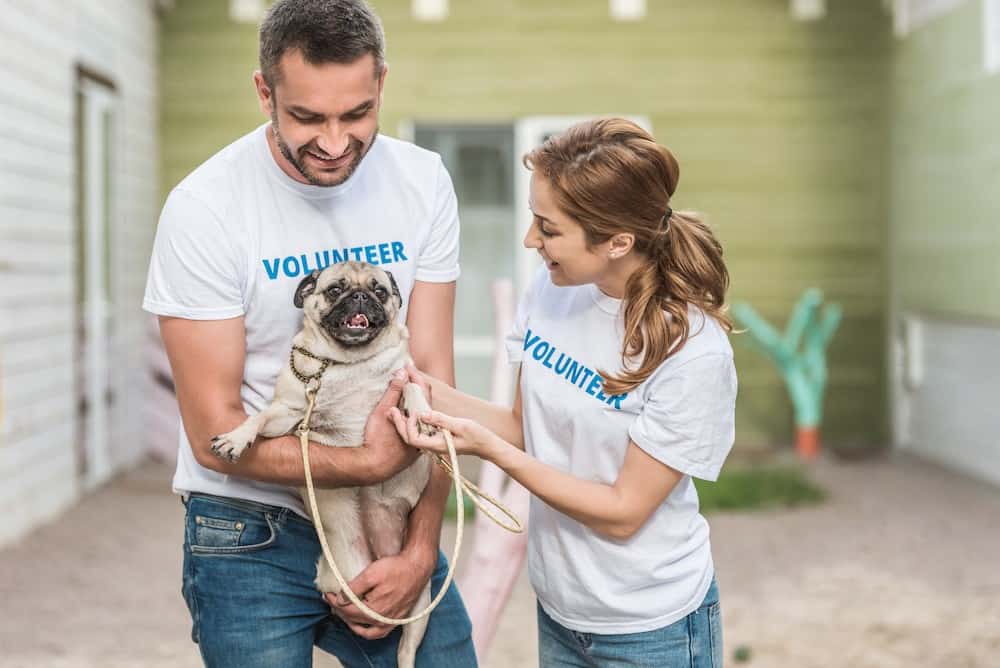



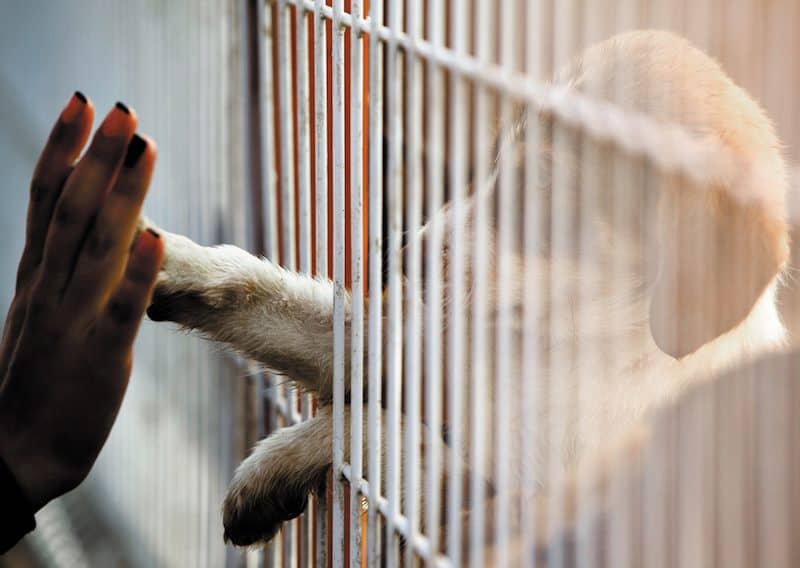

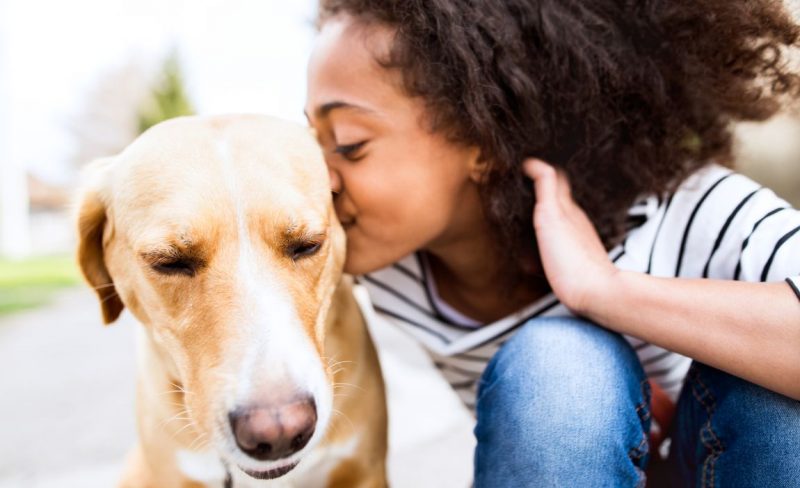

Leave a Comment